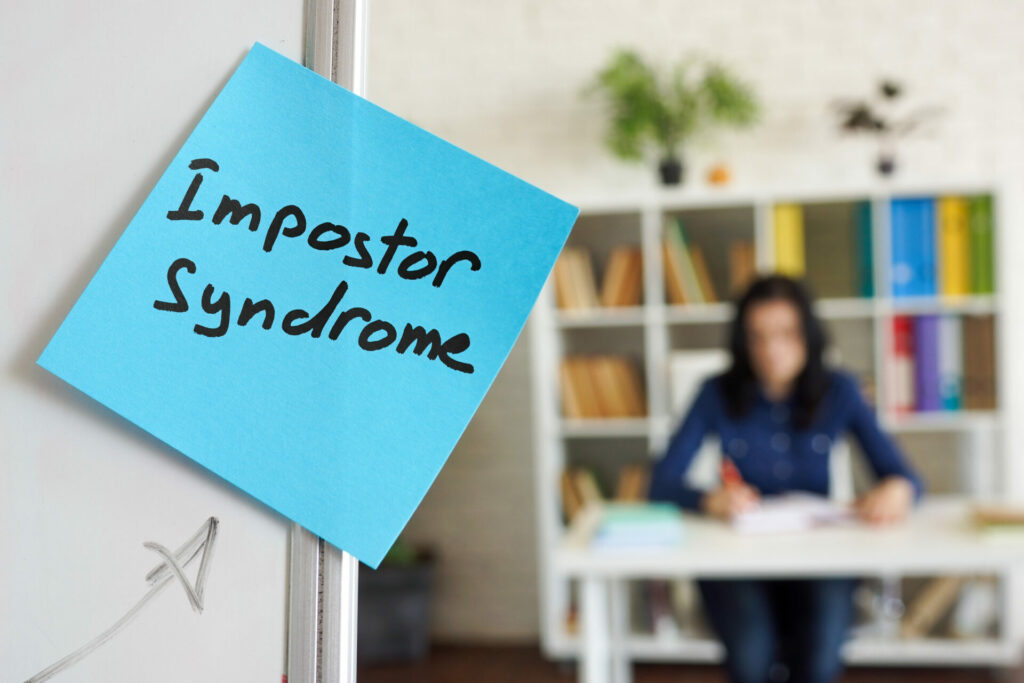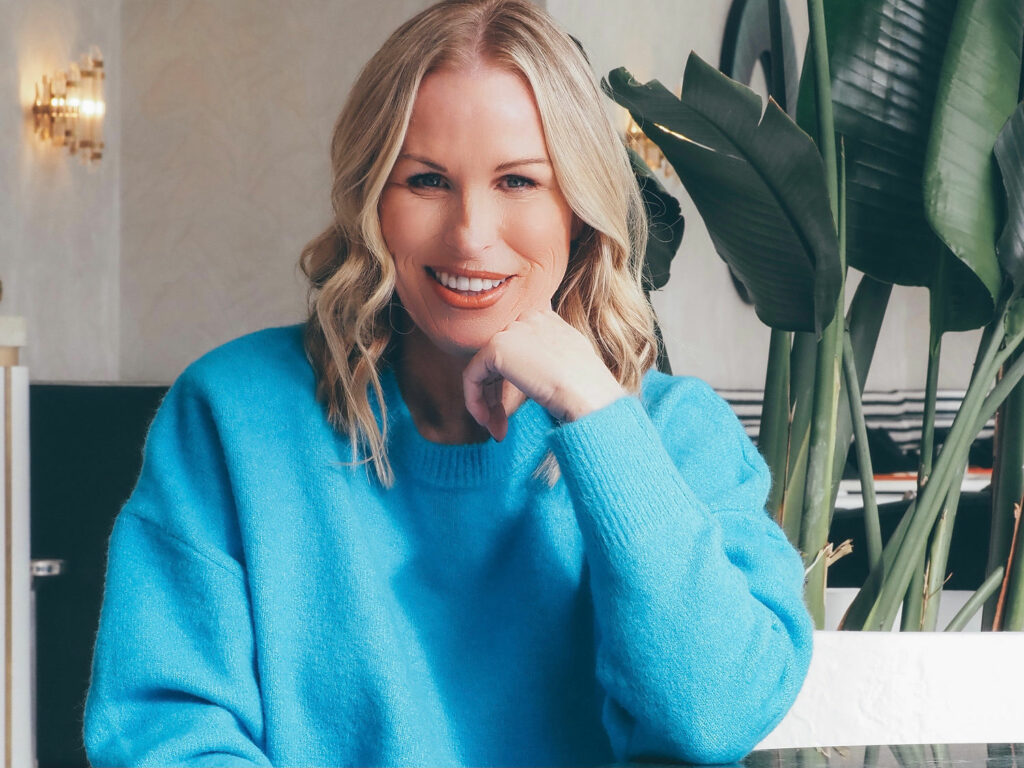Amelie has just given a presentation to more than 50 managers about attracting recruits to their highly successful law practice. Her audience is rapt. Her ideas have flowed. She looks the part in a buttery yellow Stella McCartney dress. The applause at the end is long and loud. But while the clapping is still going on, the 33-year-old marketing associate is berating herself because she feels her slides could have been better.
‘I don’t know why they even asked me to do it,’ she says. ‘All the time I was speaking, I was thinking they’re going to call me out any minute, ask me to stop because I’m not good enough and replace me with my manager. Logically, I felt I knew my stuff, but inside, I feel as if I am constantly winging it.’
Amelie is suffering from imposter syndrome, a psychological condition that involves feelings of self-doubt and inadequacy, no matter how able, accomplished or qualified we are. The term was first coined in 1978 by psychologists Pauline Clance and Suzanne Imes, who initially focused their research on high-achieving women struggling to own their accomplishments and feeling like frauds.
Experts say many women don’t even display or acknowledge their successes because of the fear they’ll have to hand them back or give them up when they are rumbled as frauds
Therapist and life coach Becki Houlston says imposter syndrome is underpinned by a fear that we shouldn’t have success and we’re not good enough.
There are examples all around us: the schoolgirl, who wins the end-of-year award for the best essay but feels it should have gone to a classmate; the student who gets a First in her degree but thinks her exam papers were overmarked and she’ll be getting an email soon to say she has a 2:2; the cardiologist who gets promoted and thinks she has just got lucky, and the conservationist who wins a prestigious award but wonders why, when there are so many more deserving people out there fighting the climate crisis.
Experts say many women don’t even display or acknowledge their successes because of the fear they’ll have to hand them back or give them up when they are rumbled as frauds.
‘Even if you’re highly accomplished, you went to a top university and you’re brilliant in your role, you’ll doubt your ability and fear you’ll soon be found out,’ says UK-based Becki, who coaches clients from all over the world. ‘Getting accolades, praise, applause, and positive feedback makes you uneasy. You don’t feel comfortable in your own skin.
Fraud Fear

‘People with imposter syndrome measure their internal feelings with how others appear to be. After a job interview, they think they’re less competent because they were nervous and they lost their train of thought on one question, while the candidate who went in the interview room afterwards looked confident and knowledgeable.’
Business and career coach Sami Toussi agrees: ‘Women with imposter syndrome frequently compare themselves with others, particularly those they view as more capable or accomplished.
‘They may believe they are faking it, and some day others will figure out they’re just not good enough. They downplay their work and blame luck or outside influences for their success. Many women, from Michelin star chefs to highly talented musicians, have suffered from this syndrome.’
‘I still sometimes feel like a loser kid in high school and I have to pick myself up and tell myself that I’m a superstar every morning so that I can get through this day and be for my fans what they need for me to be’
Even celebritries admit to feeling like a fraud. Tina Fey, Emma Watson, Maisie Williams and Sheryl Sandberg, former COO of Facebook admitted having Imposter Syndrome. In her book, Lean In: Women, Work and the Will to Lead, Sandberg wrote: ‘And every time I didn’t embarrass myself – or even excelled – I believed that I had fooled everyone yet again. One day soon, the jig would be up.’
Imposter Syndrome

Lady Gaga is the first to admit her Imposter Syndrome: ‘I still sometimes feel like a loser kid in high school and I just have to pick myself up and tell myself that I’m a superstar every morning so that I can get through this day and be for my fans what they need for me to be.’
And though experts usually associate this thinking style with our professional lives, the feeling of being a fraud can affect other areas – perfectly good mums compare themselves to other mothers and berate themselves for not helping their children enough with their homework, not taking them on enough educational days out or not baking cupcakes for school charity events. Wives feel they’re not as good or loving as other married women. Men, too, can be affected.
Says Becki: ‘Lots of men get imposter syndrome but they front it out. They don’t acknowledge anxiety as women do. They bury their discomfort.
‘For both men and women, it can cause great stress and shortness of breath. People affected might take up habits like constant scrolling on their phone or develop an alcohol or shopping addiction. These behaviours numb your deeper feelings about your identity and how you see yourself.’

So why does imposter syndrome affect some people, yet it passes others by? Becki has spotted a connection between perfectionism and imposter syndrome.
Women are socialised to be more self-critical and less confident than men. Girls are often encouraged to be quiet, polite and accommodating. These expectations persist into adulthood and affect the way women view themselves and their accomplishments
‘People who are always looking through the lens of what’s wrong with the world, their home, themselves, instead of what’s right, will diminish their performance in their own mind,’ she says. ‘When they’re giving a presentation, as Amelie did, they’ll focus on the tiny thing that went wrong or wasn’t quite right, like the word they stumbled over or the slides that could have been better.’
Sami, who is based in Los Angeles and works with clients globally, says this feeling of being a fraud can develop later in life because of childhood experiences.
‘Things like severe criticism, frequent comparison to others or unreasonable demands from parents and other authority figures can lead to imposter syndrome,’ she says. ‘All these situations might erode one’s confidence and foster self-doubt.
‘Stereotypes and societal expectations, especially those that are gender-related, might exacerbate imposter syndrome. Women are socialised to be more self-critical and less confident than men. Girls are often encouraged to be quiet, polite and accommodating, while boys are encouraged to be assertive and confident. These expectations persist into adulthood and affect the way women view themselves and their accomplishments.
‘But no way does it have to be a lifetime thing. It’s all mental. The more quickly we learn that we, as women, deserve our accomplishments, no matter what stigmas society sets, we are one step closer to eradicating imposter syndrome. We need to be proud of our accomplishments, with no second thought of remorse or stress.’
So how can we get to grips with this destructive syndrome and wave goodbye to the imposter within us?
Do a Reality Check

Draw on past experience, advises Becki. ‘Ask yourself what the reality of the situation is,’ she says. ‘If you’re writing a report for your company, look at your level of experience and expertise. Remind yourself you have written many reports that have been well received and accurate. If you feel you’re not as entertaining at a dinner party, recall previous get-togethers where you were bright and witty.’
Say Yes, Yes, Yes
Don’t let your worries hold you back, suggests Sami. ‘Say yes to the coffee chat with the potential new investor. Say yes to joining in a beach clean or to a new vegan recipe that you know is going to blow everyone away. Don’t let your fears take over new opportunities arising.’
Focus on Five
Make a list of five items of positive feedback you’ve had, recommends Becki. ‘You need to write them down and focus on them,’ she says. ‘It doesn’t work if you just keep them in your head, because your mind can dismiss them. When you’ve written them down, your brain must read and receive them.’
Establish a Routine

Every time you feel an imposter moment coming, take a break, advises Sami. ‘Listen to some music or get a workout, so you have those feelgood endorphins running and your serotonin gets a boost, and you feel good about yourself. You deserve everything you have created and should feel proud of who you are, not ashamed.’
Change The Narrative
Examine your negative self-talk, urges Becki. ‘Look at what you’re saying to yourself – all those put-downs, criticisms and insults, and change them into supportive thoughts,’ she says. ‘If you’re always putting yourself at the bottom of the pile, raise your mental measuring stick and start recognising your talents and accomplishments.’
Cull Your Critics
Gather positive people, recommends Sami. ‘If someone around you isn’t helping you achieve your potential and making you feel all warm and fuzzy about yourself and everything you have accomplished, they do not need to be a part of your life,’ she says. ‘Surround yourself with people who are as excited about your wins as you are, and who push you to be the best you can be.’
Mirror, Mirror

Give yourself a good talking to, suggests Becki. ‘Tell yourself: ‘I approve of myself,’ she suggests. ‘Better still, sit down with a mirror, look yourself in the eye and say those words. They’re very powerful and they can zap that draining negative self-talk.’
Unfollow on Social
If there are any social media accounts that stress you, stop following them, says Sami. ‘Often we get imposter syndrome because we compare ourselves to others we see on the internet,’ she reveals. ‘The best way to eradicate this is just unfollow any pages that make you feel you haven’t accomplished enough and that you don’t have or do enough.’













